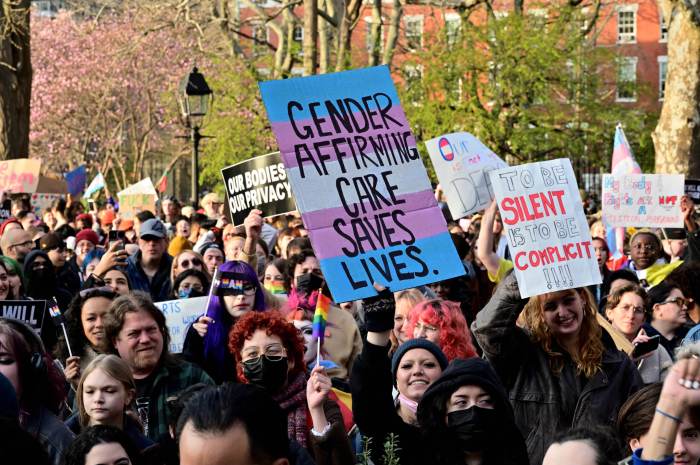Pakistan’s transgender community is calling on that nation’s government to implement a sweeping gender identity nondiscrimination bill that passed the National Assembly last May.
Activists marched through the streets of Lahore, the nation’s second largest city, on December 30 and held a press conference to amplify their message in an effort to push the government to implement the Transgender Persons Act of 2018, according to the Express Tribune, a Pakistan-based newspaper.
In a video posted on Periscope, those who marched in the Pride Parade were seen holding signs that read “Trans Pride,” “I’m trans and against bullying,” “we are proud, we are transgender,” and “we are as normal as anyone else.”
The transgender measure, hailed as a major step forward, offers a wide range of discrimination protections in education, employment, healthcare, and public accommodations and services.
Public transportation rights are also protected, along with the right to rent or buy property and hold public office.
The bill recognizes “his or her self-perceived gender identity” for identification purposes ranging from driver’s licenses to passports, and requires the government to take specific steps to protect trans people by offering safe houses when necessary, providing separate living areas for prisoners, and more.
Neeli Rana, a local leader, said the transgender community is thankful that the government passed the bill, but indicated that the issues facing transgender people are too urgent to wait any longer.
“Transgender persons do not beg willingly,” she said. “It is also our right to protest and take to the streets. Now it is the government’s responsibility to implement this bill because in the past, women bill was passed but it has never been practically implemented.”
But the bill has led to a mixed reaction from the wider population in Pakistan, which is still heavily influenced by religion. According to the Tribune Express, at least one lawmaker opposed the bill after citing “un-Islamic clauses,” but other legislators were convinced that the bill was compatible with Islam and the nation’s constitution.
Implementation of the measure would signal a major advance for transgender people, but basic civil rights are still lacking for the gay and lesbian community. Laws rooted in British colonial rule prohibit same-sex sexual activity, which is punishable by up to life in prison, according to the US State Department.

































